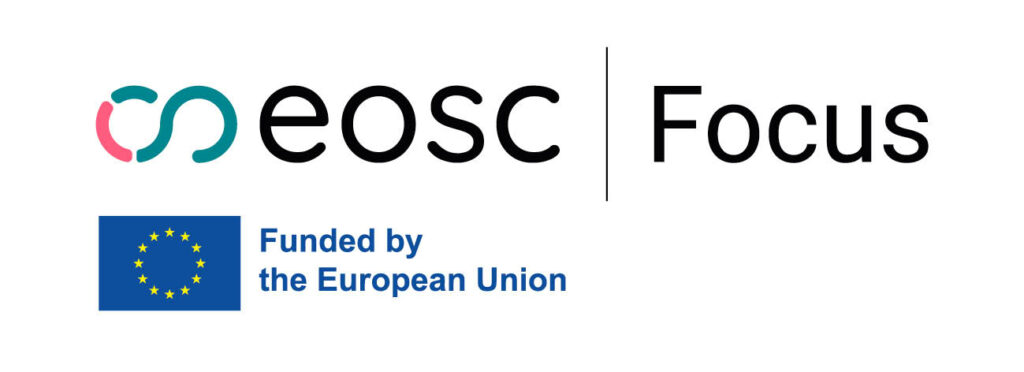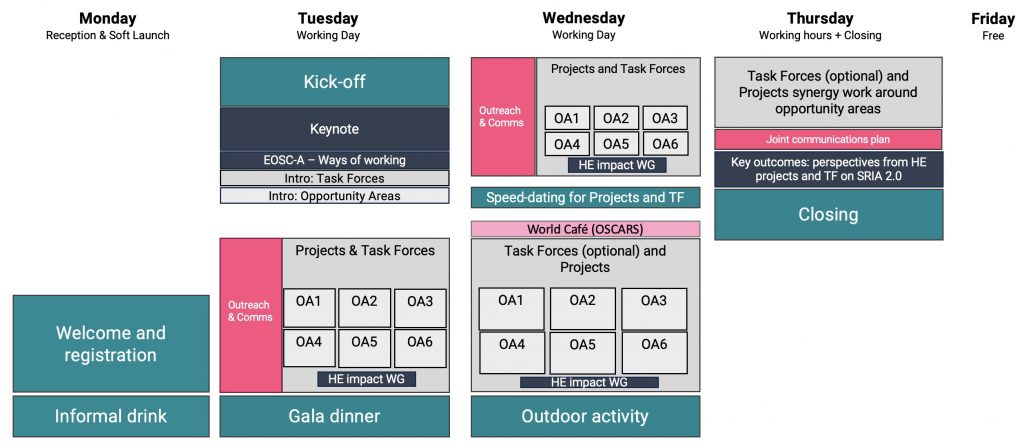
The EOSC Winter School is an initiative by EOSC-A, taken up in response to collaboration needs among Horizon Europe EOSC-related projects.
The EOSC Winter School was conceptualised following a suggestion at the European Commission’s June coordination meeting, which identified a significant collaboration gap in the Horizon Europe (HE) EOSC-related projects.
The EOSC Association, with the support of the EOSC Focus project, the HE EOSC-related projects, and local organisers from the RAISE project consortium, have organised the EOSC Winter School to address these gaps and to deepen technical understanding in various “opportunity areas”.
Objectives
The main goal is to enhance collaboration and integration among HE projects. The Winter School focuses on providing an in-depth technical understanding of specific opportunity areas and integrating the deliverables of the EOSC-A Task Forces into these projects. This integration is expected to ensure continuity and application of the Task Forces’ work.
Short-term goals include immediate understanding and feedback; medium-term goals involve planning and support for upcoming projects; and long-term objectives aim to increase the sustainability of the impact pathways of INFRAEOSC projects.
This approach is designed to ensure that the Winter School has a lasting and meaningful impact on the EOSC deployment and its related projects.
Short-term objectives
- Hand over results of EOSC-A TFs to the HE EOSC-related projects.
- Establish structured collaborations between the newly mandated EOSC-A TFs and the projects.
- Hands-on technical collaboration in the six identified Opportunity Areas in order to establish closer technical collaboration between the projects.
Mid-term objectives
- To frame inter-project collaboration that allows seamless onboarding of future projects (2023 onwards)
- Contribute to shaping the vision of SRIA 2.0
Long-term objectives
- Increase the potential of the HE EOSC-related projects to deliver sustainable results that benefit the ESOC deployment and thereby maximise project impact
- The significance of this event is underscored by its potential to bring together a diverse range of perspectives, offering a rich blend of insights and experiences.
Programme
Opportunity Areas – Outcomes
Opportunity Areas and Sessions
The EOSC Winter School sessions are organised according to EOSC technical development Opportunity Areas (OAs). Participants will be able to select and follow one parallel session.
Click on your Opportunity Area to see detailed descriptions of the sessions.
OA1: PIDs
OA2: Metadata, Ontologies & Interoperability
OA3: FAIR Assessment & Alignment
OA4: User & Resource Environments
OA5: Skills, Training, Rewards, Recognition & Upskilling
OA6: Open Scholarly Communication
INFRAEOSC Projects: Sustainable pathways to impact
Joint Communications & Outreach
Secretariat
Marthe Bierens
Technishe Universität Graz
RDM – EOSC Focus
+43 316 873 – 30687
eosc_winterschool_2024@eosc.eu
Logistics and Payments
Niki Bai
NB Events – Conference Services
+30 2310 223461
+30 6973 923328
bai@nbevents.gr


